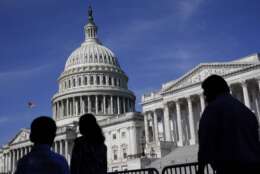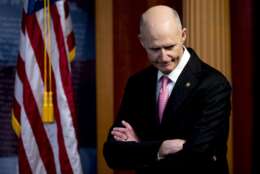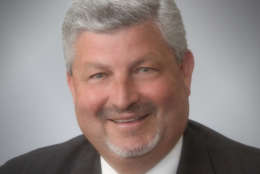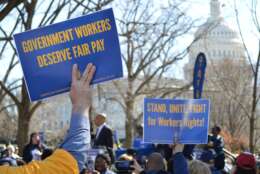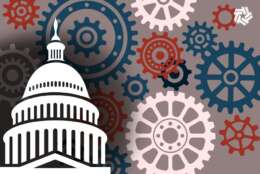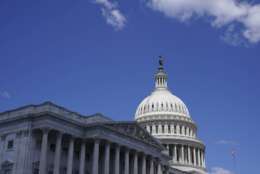Hubbard Radio Washington DC, LLC. All rights reserved. This website is not intended for users located within the European Economic Area.
On Air: Federal News Network
Schedule F
-
The Office of Personnel Management issued a proposed rule aiming to reinforce merit system protections for feds in case of a possible return of Schedule F. But some experts call for further action in Congress against Schedule F.
September 15, 2023 -
The House and Senate appropriations packages are far from the only priority for Congress this fall — and many of the other to-do items have direct impacts for federal employees.
September 07, 2023 -
In today's Federal Newscast: Sen. Tim Kaine (D-Va.) is taking another stab at killing Schedule F. There are some more return-to-office changes in the works for a couple of agencies. And President Joe Biden’s pick for second-in-command at the Department of Veterans Affairs is heading for a full Senate vote.
July 14, 2023 -
Former Trump administration officials said the now-revoked Schedule F executive order would improve federal workforce accountability, while a leader at the Partnership for Public Service shared ideas for better, more meaningful workforce reforms.
July 03, 2023 -
In today's Federal Newscast: Republicans have resurrected the effort to make some feds at-will employees, thus easier to fire. DoD's acquisition chief blames continuing resolutions for ammunition shortages for Ukraine. And top Senate lawmakers make the case for a one-stop-shop for federal disaster aid.
May 11, 2023 -
Agree or disagree, book arguing against public employee unions is worth a read
May 04, 2023 -
NTEU prioritizes bills to expand federal pay, benefits, but anticipates challenges ahead in Congress
An 8.7% federal pay raise, telework expansion and paid family and medical leave are among the top legislative priorities for the National Treasury Employees Union. But union leaders said the path forward in Congress may prove challenging.
February 28, 2023 -
Federal employees, union officials and lawmakers heightened calls for an 8.7% federal pay raise in 2024 at a rally in front of the Capitol building.
February 15, 2023 -
Sen. Tim Kaine (D-Va.) and Rep. Gerry Connolly (D-Va.) reintroduced bicameral legislation to prevent presidential administrations from reclassifying federal positions outside merit system principles.
February 14, 2023 -
The American Federation of Government Employees heightened calls to Congress to implement an 8.7% pay raise for 2024 and remove Social Security’s WEP and GPO, while also denouncing a bill to return feds to the office.
February 13, 2023 -
Agencies’ ‘future of work’ plans, priorities in the President’s Management Agenda and hiring reform efforts defined 2022 for federal employees.
December 27, 2022 -
The omnibus spending bill would give the Office of Personnel Management and the Office of Management and Budget 120 days to come up with a plan to speed up the federal hiring process.
December 22, 2022 -
Congress released the text of a massive government spending package for fiscal 2023, which includes an increase of $42.5 billion in non-defense spending and an increase of $76 billion in defense spending over enacted 2022 levels. But just a few days remain to pass the legislation and avoid either a government shutdown or another continuing resolution.
December 20, 2022 -
Though the compromise version of the 2023 NDAA removes language preventing a revival of Schedule F, the bill includes provisions to expand workers’ compensation for federal firefighters and create an online directory of political appointees.
December 08, 2022


